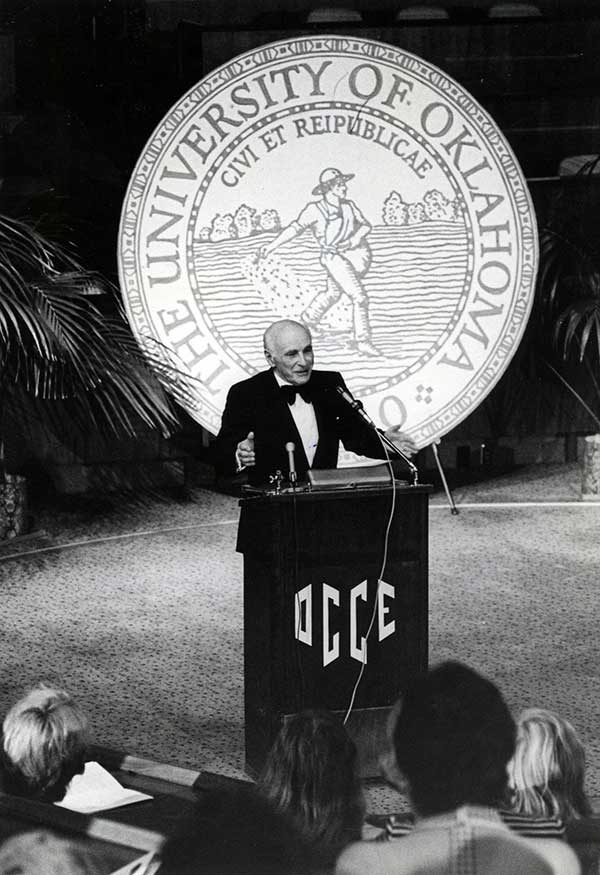
“Verbal humor is one of the more obvious features of Ponge’s style. It runs the whole gamut of word play, down to the outrageous sort of pun customarily greeted with a groan. In part, this carries on the systematic surrealist destruction of conventional literature.”—Michael Riffaterre, “Francis Ponge’s Poetics of Humor” (Books Abroad 48, Autumn 1974)
Francis Ponge (1899–1988) was a French essayist and poet. He was born in Montpellier and studied at the world-renowned Sorbonne. His first poems were published as early as 1923, and it would be through these publications that he introduced his distinct poetic style. His style of prose poetry (he often referred to this style as proêms) features meticulous descriptions of natural, everyday objects in lyric prose form. Ponge’s collections of poetry include La Rage de l’expression (1952; Eng. Mute Objects of Expression), Pour un Malherbe (1965), Le Savon (1967; Eng. Soap, 1969), and La Fabrique du Pré (1971; Eng. The Making of the Pré, 1978). In 2005 Gallimard Press published Pages d’atelier, 1917–1982, a text encompassing Ponge’s entire life’s work, including some pieces that had previously never been published. In addition to the Neustadt Prize, Ponge received the French National Poetry Prize in 1981 and the Grand Prix of the Société des Gens de Lettres in 1985.
In his presentation of Ponge to the Neustadt jury, nominating author Michel Butor remarked: “Ponge tries to be as classical as possible, as is quite manifest in a first reading of his book on Malherbe, but he cannot help being adventurous, and the result is that his experimentation is always at once daring and deeply justified, discreet and decisive” (Books Abroad 48, Autumn 1974).
Neustadt Prize Jurors & Finalists: 1974 |
||||
|---|---|---|---|---|
| JURORS | FINALISTS | |||
| Chinua Achebe (Nigeria) | Wole Soyinka (Nigeria) | |||
| Adonis (Lebanon) | Georges Schéhadé (Lebanon) | |||
| Michel Butor (France) | Francis Ponge (France) | |||
| Ernst Jandl (Austria) | Ian Hamilton Finlay (Scotland) | |||
| Ferenc Karinthy (Hungary) | Gyula Illyés (Hungary) | |||
| Olof Lagercrantz (Sweden) | Eyvind Johnson (Sweden) | |||
| George Dem. Loghin (Romania) | Zaharia Stancu (Romania) | |||
| Mario Luzi (Italy) | Allen Tate (USA) | |||
| Joyce Carol Oates (USA) | Doris Lessing (Rhodesia) | |||
| Andri Peer (Switzerland) | Henri Michaux (Begium) | |||
| John Willett (England) | Anna Seghers (East Germany) | |||
“This is a great day for me. Perhaps it is because I have been enclosed within my own language that I am listening now, hearing encomiums, compliments and receiving praise and an important prize, in a language that I cannot understand. I am not saying that there is a lesson to be learned here. I think that it is excellent to know many languages, but I am also convinced that we work amidst our ignorances. One must work, defend oneself against too much knowledge and enclose oneself in one’s language.”
—Francis Ponge (France), 1974 Neustadt Laureate

